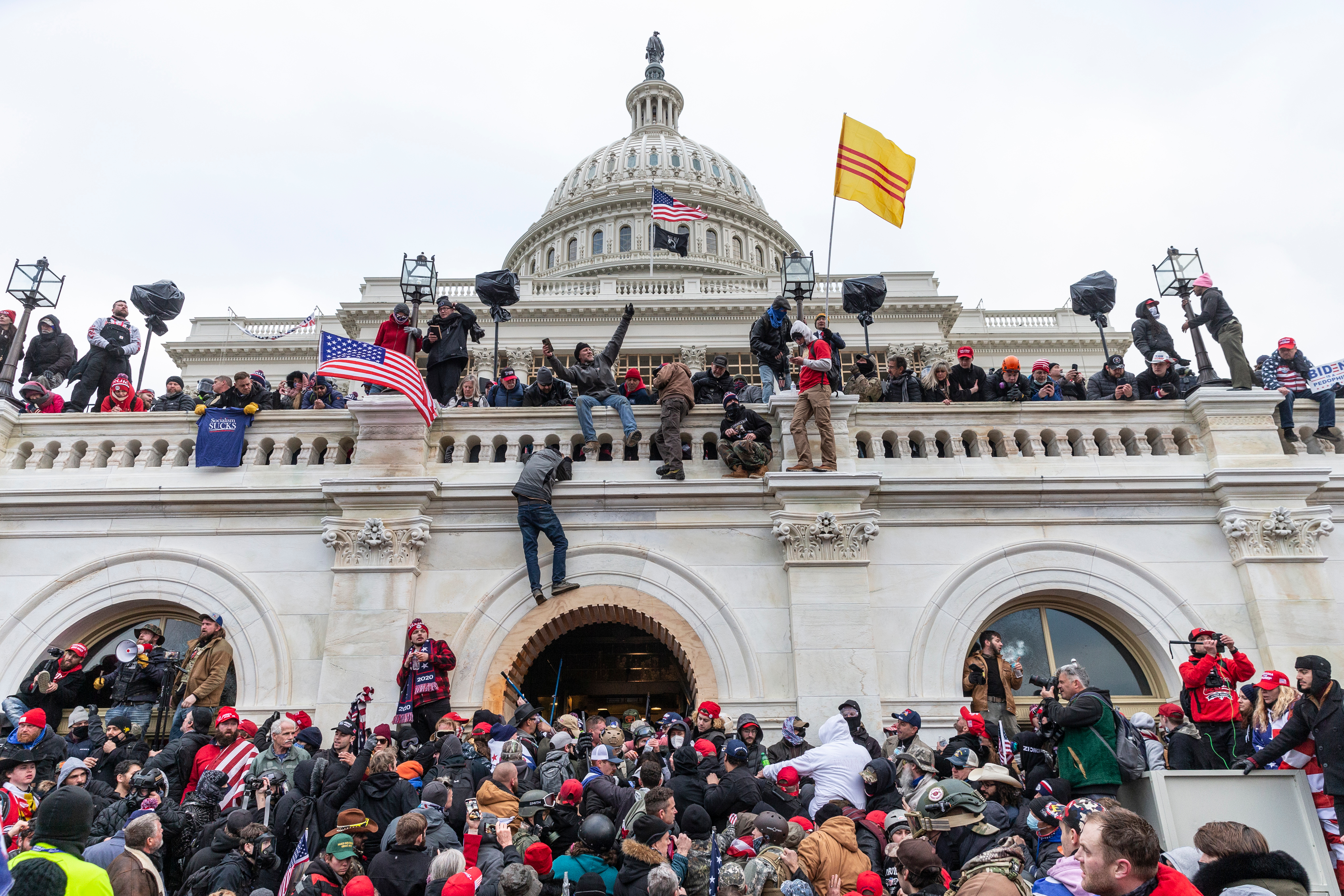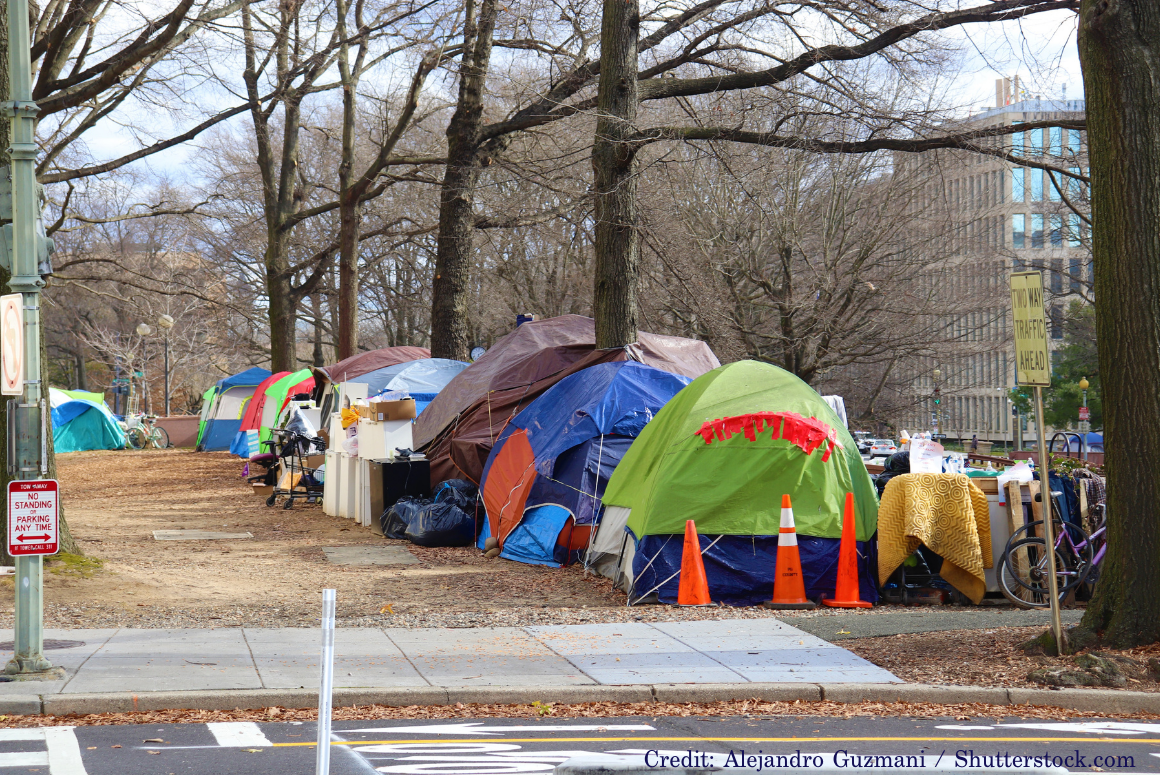For two weeks at the end of 2020 and beginning of 2021, my good friend Taylor* stayed in the basement of my home in Southeast to seek refuge from their apartment near Capitol Hill. Taylor feared for their safety because their neighbors had rented their apartment on Airbnb to a group of white insurrectionists in town to disrupt the democratic election process.
We all know what ended up happening on January 6th 2021. But it's stories like Taylor's that will go unheard as the nation recalls the violent attempt to overthrow our democracy. While the photos and videos of windows being smashed and white supremacists scaling the scaffolding outside the Capitol will live in our collective national memory, it’s us, the 700,000 residents of the District of Columbia, who are still living with the consequences.
We saw it coming. Our community was the staging ground for Unite the Right II, white supremacists’ 2018 sequel to the violent Charlottesville riot of 2017. The Proud Boys and their ilk returned for the Fourth of July celebration on the National Mall in 2019. And in 2020, the Proud Boys again converged on the District to terrorize residents by burning a Black Lives Matter flag in front of a Black church. After so many violent white supremacist events seared in our memories, many fellow District residents feared the worst and left town before the General Presidential Election in November 2020.
We live in a place where violent white supremacist insurrectionists tried and failed to stop our democracy from recognizing our votes and the votes of the nation. The attack happened within the Capitol building, where we do not, as citizens of the District of Columbia, have full voting representation, unlike other citizens of this country.
Following the insurrection, many felt we were living in an occupied state. Over 25,000 troops patrolled our neighborhoods--more troops than were in Iraq and Afghanistan combined at the time--as we tried to live, work, and take our kids to school. D.C. residents were put in a physically, mentally, and politically perilous situation made possible because we lack statehood.
As a state, D.C. would have voting representation in the House and the Senate who could lead the charge to hold those responsible for January 6 accountable. With statehood, D.C. would have full representation in Congress to advocate for the right investments in the District to shore up our community from attacks while protecting our First Amendment rights. And with statehood, the 700,000 residents of D.C., the majority of whom are Black and brown, would have full voting rights to make our voices heard. Ultimately, the right to vote was at the center of the insurrection. With statehood, we would have the necessary control to fully protect our communities and our democracy.
Attacks on voting rights and on our democracy will happen again and again if we don't firmly address and solve the root issues. Yes, our democracy prevailed, but just barely.
It is up to us to learn from what happened on January 6th—and that does not mean simply putting up fences around the Capitol building. It means that we as a nation recognize that D.C. residents are dealing with the trauma of having white supremacist extremists repeatedly spread fear and try to overthrow the results of a free and fair election. It means confronting the fact that D.C., the heart of this country’s democracy, remains vulnerable to outside attacks without the protections of statehood. It means showing the nation how January 6th has impacted us in big and small ways, like it did for my friend Taylor.
It also means increasing our protection of voting rights. Our democracy works best when all eligible voters can participate and have their voices heard. Passing the John Lewis Voting Rights Advancement Act and the Washington D.C. Admissions Act are important actions that can protect the voting rights of Americans, especially Black and brown Americans. Remind your friends and family across the country to urge their members of Congress to support D.C. statehood because it is essential in the fight for full and equal voting rights for all Americans. If we don't learn from January 6th, we risk our entire democracy again.
*Taylor is a pseudonym used to protect the person’s identity.
Date
Wednesday, January 5, 2022 - 8:30amFeatured image

Editorial credit: lev radin / Shutterstock.com
